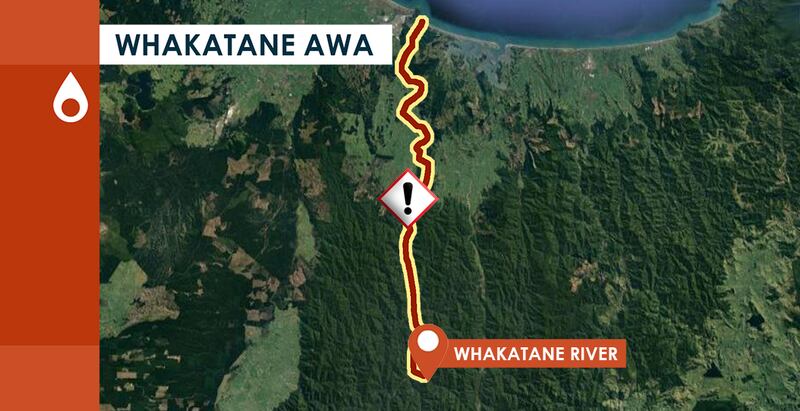Fishing boats continue to go out on the water despite the rāhui that Ngāti Awa have placed on the Whakatāne River. The rāhui was imposed after the tragic death of a person in a drowning accident yesterday.
Local iwi urge the public to respect the rāhui that was conducted by kaumātua who attended the scene with the whānau pani. People around the district and travellers are advised not to gather kaimoana, fish or swim in the river.
Iwi leader Joe Harawira told Te Ao Māori News that the rāhui will start from Turuturu Roimata (near the river mouth) to Taneatua. This will take effect until 5am on Friday 10 January.

Rāhui boundary on Whakatāne River - Photo / File
“We send our whakaaro to the grieving whānau. Our Ngāti Awa whānau were with them yesterday to manaaki them," says Harawira.
Emergency services were advised shortly after 2pm that a person had been pulled from the water in a critical condition. Medical attention was administered but the person died at the scene.
Whakatāne District Council are working with iwi to ensure the rāhui is acknowledged.
⚠️NOTICE: Rāhui Whakatāne River In light of the tragic drowning yesterday afternoon near the Whakatāne river mouth,...
Posted by Te Kaunihera ā-rohe o Whakatāne - Whakatāne District Council on Tuesday, January 7, 2020
Mana whenua, in the past, have had wide concerns that locals and the public are either not aware or do not respect rāhui that have been put in place. But there is hope their advice will be adhered to.
A previous rāhui in the area was lifted on 28 December 2019 following after the devastating Whakaari-White Island eruption where 19 lives were lost, including two who remain missing but are presumed dead.
A rāhui is ancient Māori practice that prohibits people from using a particular area or activity. During 1900s, Māori were vigilant in upholding tikanga Māori practices that ensured areas of rāhui were tapu.
Rāhui helps to restore the mauri in affected areas and pays respect to the lives lost and their families.
“It means that you can’t collect kai or fish in areas that have rāhui placed on it,” says Harawira.
